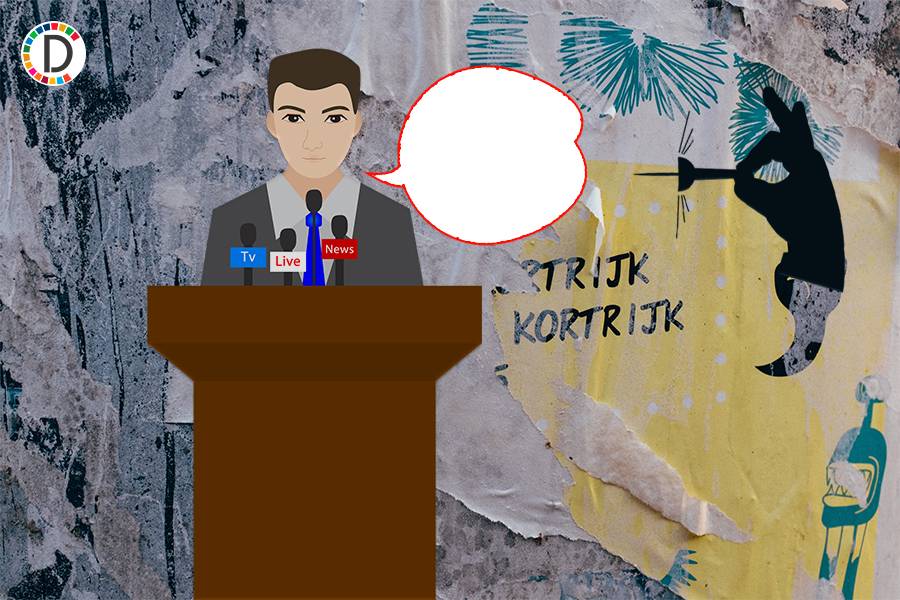UPDATE 2-Czechs vote as frontrunner Babis promises more spending, less Ukraine aid

Czechs began voting on Friday in an election likely to oust their centre-right government, with polls favouring populist billionaire Andrej Babis to return to power on pledges to raise wages and lift growth while reducing aid for Ukraine. The change would boost Europe's populist anti-immigration camp and could complicate consensus on climate policies.
Czechs endured inflation surges after the global pandemic and Russia's invasion of Ukraine, and have had a slow recovery from one of Europe's worst drops in real incomes. That has hurt the popularity of Prime Minister Petr Fiala's Spolu coalition and its liberal government allies, who focused on lowering the budget deficit.
BABIS HAS PLEDGED TO END UKRAINE AMMUNITION PROJECT Both candidates made last-ditch appeals to voters on Friday, with Babis handing out doughnuts in the industrial city of Ostrava and telling his voters not to feel like anything was won yet.
Babis, whose ANO party held double-digit leads in most opinion polls, is an ally of Hungary's Viktor Orban in the Patriots for Europe group in the European Parliament, and has taken an ambivalent line on aid to Ukraine - a departure from Fiala's government, which has strongly supported Kyiv since Russia's full-scale invasion in 2022. While donating less than some others financially, the Czechs were among the first to provide tanks and fighting vehicles and they set up the so-called "Czech initiative" pulling together traders and defence officials to find millions of artillery rounds around the world for Kyiv with financing from Western countries.
Babis has pledged to end the ammunition project, saying it is overpriced. He wants NATO and the EU to handle Ukraine. Voting stations are open until 10 p.m. (2000 GMT) on Friday and from 8 a.m. until 2 p.m. on Saturday, with results expected that afternoon.
BABIS PARTY SHORT OF ALLIES, UNLIKELY TO WIN MAJORITY Opinion polls pointed to Babis's ANO party winning more than 30% of the vote, about 10 points more than Fiala's Spolu coalition.
"A success would be if we win and will have a majority in the lower house and a one-party cabinet," Babis said. That is unlikely, opinion polls have shown, which makes the performance of smaller parties important.
ANO's sour relations with Spolu and its allies mean the party may need support from anti-EU and anti-NATO fringe parties - the far-right SPD and the far-left Stacilo! - for its preferred one-party cabinet. Babis has rejected steps towards exit from the EU or NATO, including calls for referendums, countering accusations by the current government that he would drag the country off its democratic pro-Western course.
If some smaller fringe parties fall below the 5% threshold to get into parliament, that could favour government parties. Fiala said he hoped his government could continue and keep the country "a solid part of NATO and the European Union" and on a growth path.
Babis's ANO has promised faster growth, offering higher wages and pensions, and lower taxes and tax discounts for students and young families to draw supporters. After voting in Brno, 20-year-old student Samuel Sebastien Strahotsky said he expected ANO to win and deliver increases in pensions and student discounts.
President Petr Pavel, who appoints prime ministers, will meet party leaders on Sunday and said on Friday he expected difficult government negotiations. Babis must overcome other hurdles to become prime minister, including conflict-of-interest laws as owner of a chemicals and food empire and long-running fraud charges related to drawing an EU subsidy more than 15 years ago, a charge he denies.
(This story has not been edited by Devdiscourse staff and is auto-generated from a syndicated feed.)
ALSO READ
UPDATE 2-European shares mark best week since April on boost from banks, healthcare
CORRECTED-UPDATE 1-Macron, Merz call for European resolve against 'dark enlightenment' of authoritarianism
The Call to Strengthen Financial Regulations in Europe
Moldova's European Ambitions: A Tug of War with Russian Influence
Mystery Drones Disrupt European Airports: A Security Challenge










